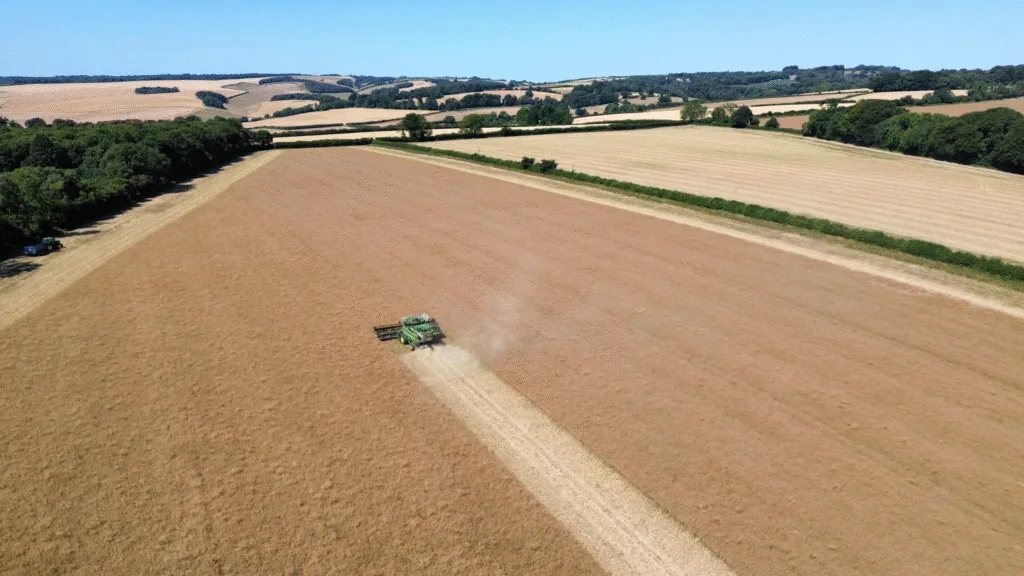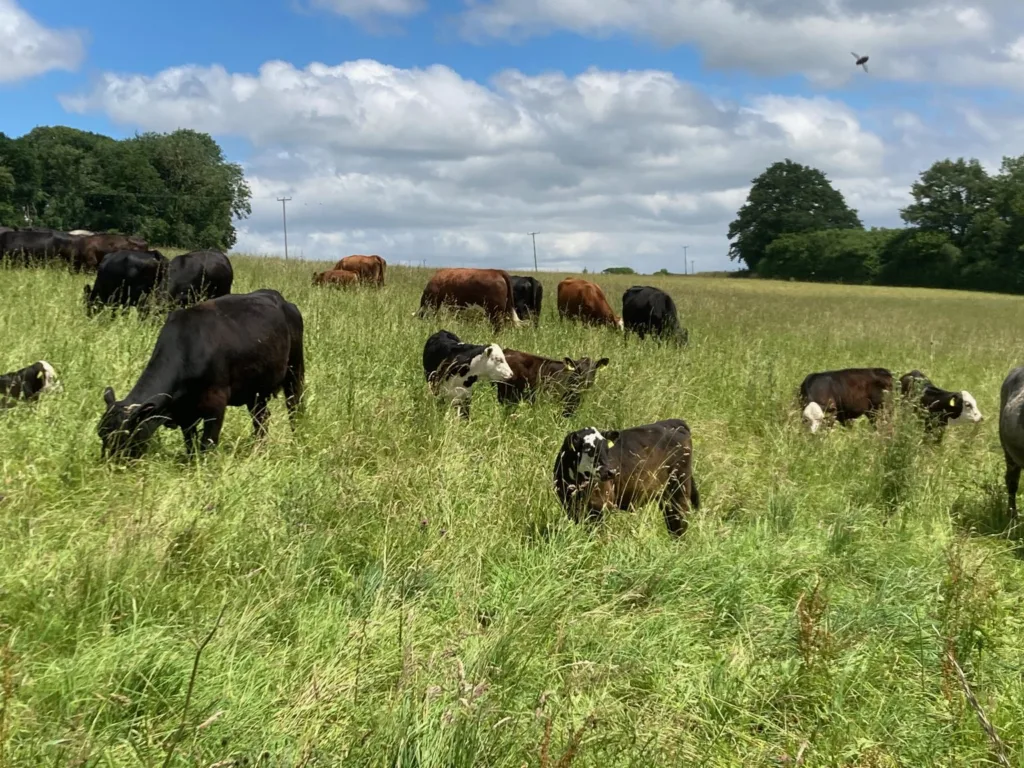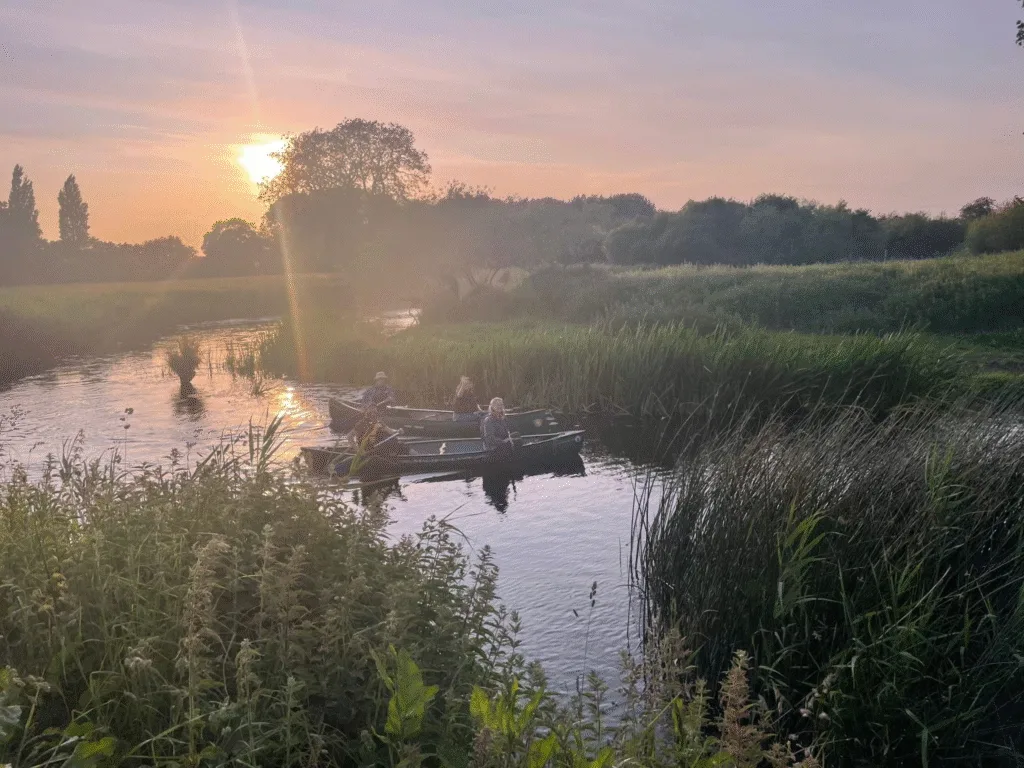Regenerative farming is full of trade-offs: leatherjackets love ley fields, birds love the worms and schemes shut before you can apply
The picture below, taken last year, shows a group of cows and calves enjoying one of our herbal ley fields – with Theo the bull, head-down mid-picture. I’m including it because it helps explain how difficult it is to marry the soil-improving value of three or four years of grazed herbal ley with the successful return of the field to the arable rotation.
The mix of grasses, legumes and other species in a herbal ley provides a healthy diet for the cows, a vital disease and weed break for the arable crops, a fertility boost from grazing and manuring, and the fixing of free nitrogen by the legumes. All of which are solid pluses.
The tricky bit comes when terminating the ley so that a cash crop can be sown. Winter wheat would potentially be the best-paying option – sown in the autumn – which we tried last time this field came out of ley. But the crop was hammered by leatherjackets (the larva of the crane fly, or daddy longlegs). These pests love grass fields. The larvae hatch in early spring and munch away at the grass roots below the surface – barely noticed when the grass is growing fast. But in wheat, the result is large bare patches, which are annoying and frankly a bit embarrassing when your neighbours can see them.

All images: George Hosford
The debate
Some of those neighbours might suggest this was bound to happen because we insist on direct drilling our crops. But that’s the modern way, isn’t it? Less soil disturbance is high on the regenerative farming list – preserving structure, reducing nitrate leaching, keeping organic matter locked in.
However, cultivation – dare I say even ploughing – exposes leatherjackets to the air, where our feathered friends, especially gulls, can feast on them. Gulls can smell freshly-turned soil from miles away. The downside is that they’ll take worms too – which is exactly why we stopped ploughing more than 20 years ago.
We had a rather lively debate in the farm office earlier this year about how to get Lower Down field back to arable:
Decision 1: Spring or autumn sowing?
We chose spring, to let the cows stay out longer into autumn without damaging the pasture – since we were going to destroy it anyway.
Decision 2: Which crop?
Spring-sown wheat or barley would risk wasting the break effect and might still fall victim to leatherjackets. Peas are no good here – too stony. Linseed’s a loser, and spring rape worse. Beans? They were awful last time … That left oats – maybe with a few beans mixed in. That worked well last year, and if we could claim the new SFI payment for low-input cereal crops, it might even make a profit.*
Decision 3: How to sow?
To sow two crops together we need the Sky drill. But oats are cereals – would they be hit by leatherjackets like the wheat was? Should we at least consider some cultivation? But if we do, birds will turn over the clods as soon as it’s sown and rolled, leaving an exposed, drying seedbed. Ploughing would bury the turf completely …
In the end, we sprayed off the ley with glyphosate and drilled the seed mix directly into the browning turf. The Sky drill did its thing, cutting through and placing the seeds.
The dry season hasn’t been kind to the beans, and the oats struggled with competition from some of the herbal ley species that weren’t fazed by glyphosate. Being a bicrop, our weed control options were limited. Watch this space to see what we do next time.

Meanwhile, on the Stour …
Our farmer cluster group finally achieved its long-hoped-for goal of paddling a stretch of the Stour on a beautiful evening. We put in at Bere Marsh Farm, Shillingstone, where the team from the Countryside Restoration Trust had kindly cut a nettle-free path to the water. Simon Jones, our intrepid leader for the evening, provided six Canadian canoes (thanks to Bryanston School, where he’s in charge of canoeing) and got us kitted up.
After so long without rain, we weren’t sure what to expect – would we actually be able to paddle anywhere? Reeds, trees and weirs can stop you in your tracks. Sure enough, after Hayward’s Bridge we were straight into a reed thicket. The first couple of kilometres were taxing – fallen trees, thick weeds and overhangs made progress tough. A couple of us had to wade out to help boats through, over or under the blockages.
Swans were another concern – we passed at least six – but all without incident. Just one cygnet spotted, which seemed a little disappointing, though one swan was regally perched on a beautiful island nest.
We had a few experts along. The general feeling was that while shade is good for rivers, you can have too much of a good thing – some trees were overhanging the river by 30 feet or more. It’s hard to shake the impression that the Stour is more a chain of stagnant ponds than a flowing river, especially this year. But the water was remarkably clean, perhaps thanks to the dry spell – with no smell or colour at the sewage outfalls. Less rain means less debris washed in from roads, farms and riverbanks (and livestock really shouldn’t be in the river – you have seen what comes out of the back end of a cow, with no warning, right?). There is funding available for fencing intended to keep stock out of rivers.

Straw sale surprise
Finally, a packed sale room on straw day saw prices rise to near-record levels. More than 8,000 acres of straw from across neighbouring counties went under Greg Ridout’s hammer in a couple of hours. A buoyant milk price and a strong livestock trade helped fuel the bidding frenzy, as buyers moved to secure supplies in what’s shaping up to be a low-yield season.
*We sowed the crop. The scheme closed a few days later – before we pressed GO on the application. Many farmers have been caught out by this sort of thing. It’s the kind of nonsense that destroys confidence in ‘schemes’.


